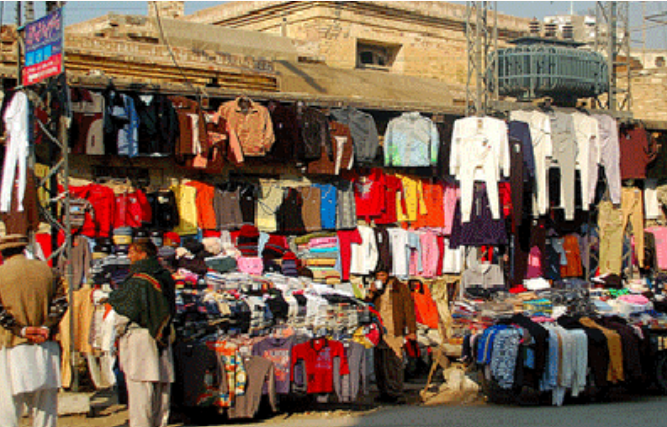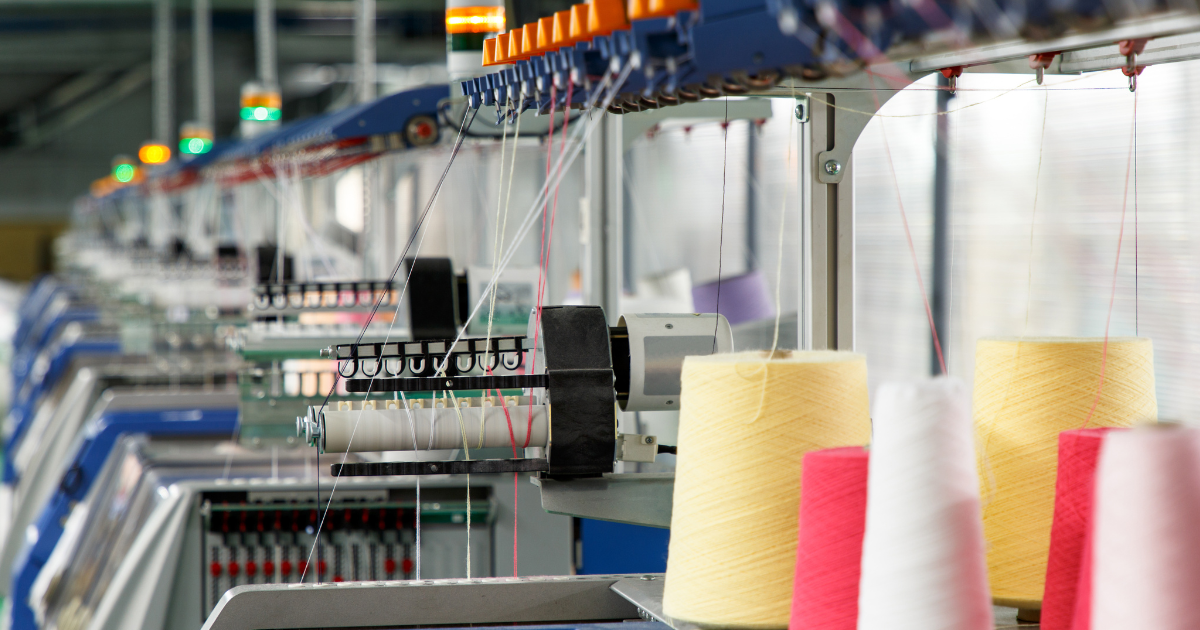Karachi, Pakistan's bustling economic heart, is currently grappling with yet more challenges as two industrial units have recently announced partial shutdowns in response to thinning demand within the textile and automobile sectors. These developments underscore the broader difficulties faced by Pakistan's industrial landscape, particularly its vital textile sector, which represents a substantial portion of the country's export earnings. In this blog post, we take a deeper dive into the issues afflicting Karachi's textile industry and the intricate web of economic factors at play.
Textile Industry Woes
Shahzad Textile, a prominent player in Pakistan's textile sector, recently made headlines by announcing the partial shutdown of two of its manufacturing units. The primary reason cited was the dwindling demand for yarn and other textile products, a trend that has put immense pressure on textile businesses. This decision has brought to the forefront the formidable challenges emanating from the global economic slowdown and the recession in Europe, both of which have taken a substantial toll on Pakistan's textile enterprises.
Moreover, the rising production costs, particularly due to soaring energy tariffs, have rendered Pakistan less competitive in international markets. The textile sector, which has historically played a pivotal role in Pakistan's economic landscape, now finds itself grappling with challenges that have significant long-term ramifications for the nation's economic stability.
Automobile Industry Blues
In a parallel narrative, Agriauto Industries, a significant player in the auto parts manufacturing sector, also announced partial closures of its manufacturing plant. This decision is emblematic of the broader economic challenges confronting Pakistan, including reduced consumer affordability, a dwindling demand for automobiles, and the adverse impact of higher interest rates on auto financing. The availability of affordable financing has traditionally been a catalyst for driving auto sales; however, the stringent economic conditions have disrupted this vital element of the industry.
Factors Contributing to the Crisis
Several underlying factors contribute to the current economic turmoil in Karachi's textile and manufacturing sectors, further highlighting the multifaceted nature of these challenges:
Historical Context
Karachi's industrial landscape has been shaped by historical events, particularly the nationalization of large industrial units in the 1970s, which subsequently led to the fragmentation of these units. This fragmentation was driven by a fear of nationalization and was often accompanied by relocations from formal industrial areas to low-income residential settlements or unofficially designated commercial zones.
Global Competition
The 1990s ushered in a wave of liberalization, opening the doors to cheaper imports, particularly from countries such as China and India. This increased competition, combined with higher labour and energy costs in Pakistan, had a detrimental effect on local industries, including textiles.
Regional Conflicts
Ongoing regional conflicts have disrupted trade, making it difficult and erratic. This has discouraged production, severely disrupted tourism, and fostered the growth of illegal trade, further destabilizing Karachi's industrial sector.
Political Turmoil
Karachi has been a battleground for political disagreements and turf battles between different ethnic groups, leading to a breakdown in governance, frequent violence, strikes, and market closures. These political conflicts have led to uncertain market conditions, impacting businesses and prices.
Energy Challenges
Karachi's frequent energy outages have significantly reduced production, particularly in smaller industrial units that cannot afford the costs of a continuous electricity supply. These outages have become a major stumbling block for businesses in the city.
The Informal Sector
The study also sheds light on the extensive presence of an informal industrial sector in Karachi. This informal sector includes activities such as recycling, second-hand clothing sales, scrap collection, and more. Notably, these informal activities often operate in violation of zoning regulations, yet they make a significant contribution to the city's economy. This observation underscores the need for a more nuanced understanding of Karachi's diverse economic landscape.
Karachi's textile and manufacturing sectors are navigating a complex web of challenges, ranging from global economic shifts and soaring production costs to political instability and regional conflicts. These challenges reverberate throughout Pakistan's economy, given the textile sector's substantial contribution to export earnings and employment. Effectively addressing these issues will require a multifaceted approach involving policy measures, strategic investments, and efforts to promote stability in the region. As Karachi continues to evolve, a deeper understanding of its informal economic activities can provide valuable insights for policymakers, researchers, and businesses seeking to navigate this intricate economic landscape.















.png)






